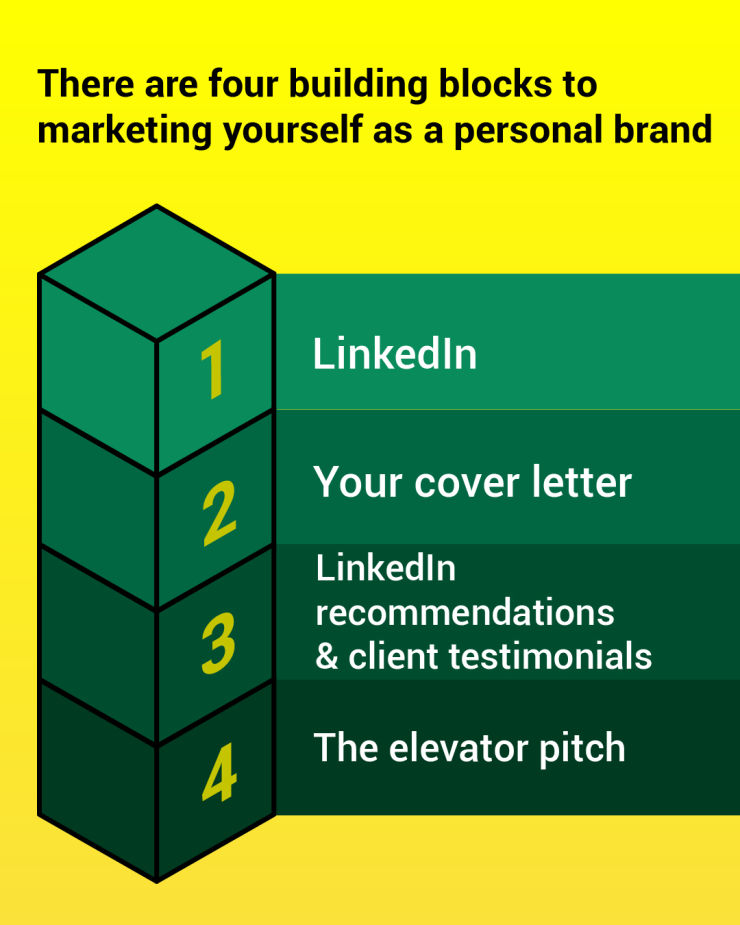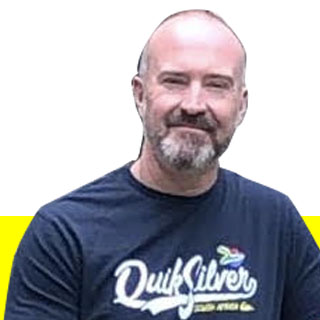
How to ace a job interview!
The average person will go on many job interviews across their career, so it is imperative to stand out from others in the running and really nail it
How can I interview better and what are the tips and tricks that will help me succeed? These are questions that all candidates must ask of themselves before entering an interview session, or face disappointment and potentially, a knock in confidence.
The questions and answers were dissected in Nexford’s recent Global Grid webinar hosted by Jennifer Bangoura, EdD, Nexford’s Director of Career Innovation, and Cybill Getgood, The Global Grid Mentor and VP & Partner at TeamRecruit.

Cybill laments, “I was a student in a province of a third world country when, a long time ago, I went on this job interview. I was invited by my best friend’s sister who advised me to attend. Because I came from humble beginnings I had no CV, so I sat in front of the CEO who was interviewing me without one. What really surprised me was he didn’t ask me why I didn’t have one. Instead, he chose to ask were I to have an opportunity to leave the country, would I, and why?
She didn’t leave, because even as a 17-year-old she genuinely believed that she had lots to contribute to the country of her birth. Little did Cybill realize how that decision would change her life for the better, because in a bizarre twist of fate, the CEO who interviewed her on that day is now amazingly, the CEO of her company and a trusted business partner. Together they’ve built and sold multimillion-dollar firms and now they both own one.
Now whilst we don’t advocate turning up without a CV for a job interview, it just goes to highlight the importance of nailing that all-important job interview by putting your best foot forward. Like Cybill, you could be in the same situation that she was in 13 years ago in a job interview that could totally transform your life.
Where to start preparing for your interview
There are quite a few things to be aware of that will probably make the difference between being hired or passed over for the position. There is the pre-interview preparation, the ability to create positive first impressions via an incredible interview presence, crafting your professional elevator pitch questions to ask the hiring manager, and of course, doing everything in your power to avoid the list of what not to do during a job interview.
"Applying for a job is like joining a race. You would not just pitch up without any training under your belt.”

Still using that analogy, but bringing that back to job terms, when you register for the race, you must register for job boards on job sites or the job portal of the company to which you are applying. You’ve got to pick the job or job description that totally suits your capability, and you must assemble the right gear.
What is the right gear in a job application context?
You need to assemble your CV and you’ve got to update and optimize it along with your LinkedIn profile. Recruiters see hundreds if not thousands of CVs each day that are bland and black and white with no personality. So, if you want to be a candidate that gets immediately noticed by the recruiter, yours needs to really stand out as you have quite shockingly only 1/10 of a second to make a first impression, totaling up to seven seconds for a major impression. To make a great first impression, many candidates nowadays have fully designed CVs that really stand out. If you don’t have access to a designer or aren’t one yourself, all hope is not lost as there are intuitive and free tools that you can use such as Canva. There’s a template on Canva you can use, or you can use a tool that’s called enhance a CV.
Cybill makes mention that next, you need to research the company for which you are interviewing. She says, “Find out what services they offer, their goals, their mission and vision, and their purpose for doing business. If you have not done your due diligence on the company, that is a major red flag for recruiters and your interview will be over just after it has started. If you really want to impress and you’ve mentioned the values of a company, tell the recruiter about why and how these values truly resonate with who you are as a professional.”
Another thing is to get to know the hiring manager in advance. Find their name, comb through their LinkedIn profile – it’s usually found in the calendar invite if it’s a virtual interview – or it can be found on the company’s website. Another top tip is to use tools such as Crystal nose which is a free Google extension. Whenever you go to the LinkedIn profile of the hiring manager, or a person that you’re potentially trying to convince or influence, click the crystal nose button and it will tell you exactly how to communicate with that person. Very handy!
Next, prepare two to five thoughtful questions. Don’t ask anything that you can find on the internet, because that will surely irritate the interviewer unless it’s really something that you really, really need to know. That said, it’s especially important to prepare some thoughtful questions as it could be a red flag for a hiring manager to interview a candidate that doesn’t have any questions. The questions aren’t just an opportunity for you to know more about the company, it’s also a way for you to express what’s important to you.
Thereafter you need to assemble two to three professional references. Cybil further comments, “It’s crazy that I still see people sending me their sister, their uncle, or friend’s names as references. If you want to get hired, you must supply professional references. That could be somebody that you worked alongside, maybe a client of yours, or your boss. The one that has the most gravitas is your direct supervisor. If you’re leaving a company and you may feel a bit disgruntled, never ever burn the bridge with your direct supervisor. Build that connection because one day that reference is going to mean something to you.”
Now it is time to formulate your elevator pitch. This is a brief description of an idea, product, or company that explains the concept in a way such that any listener can understand it in a brief period of time. Your interviewer’s time is limited so you can’t babble on about who you are and what incredible things you have achieved. Before you get to that, impress the interviewer with non-verbal cues. Many interviews are remote now, so it is important that when you turn that video on you welcome your interviewer with a good smile.
Even though it is a virtual interview, you need to be dressed professionally as you would in a physical interview. A t-shirt will not do! The hiring managers look at and assess everything. Dressing professionally puts you in a business mindset and shows that you mean business. Interview presence is so crucial because it’s the difference between being hired or being declined.
There’s also voice modulation. It is so underplayed because many people just talk very plainly because this is all that they’ve done. When you tell a story, you want to engage by having inflections in your voice so there’s some variation, or risk sending the interviewer to sleep.

1. LinkedIn
It’s your online presence. It is not just a chronicle of what you’ve done, it’s an expression of yourself, your footprint on the internet. So, make sure you spend your time building it because this is the way that you market yourself. For those of you who don’t have a marketing background, LinkedIn is the way to go.
2. Your cover letter
Controversially, many will tell you that a cover letter doesn’t really matter anymore. That’s not true! If you do your research and look at the people who are hiring you, tailoring a cover letter to them and the industry they work in can help you and your attached CV stand out as it immediately shows that you are a good fit for the company.
3. LinkedIn recommendations and client testimonials
This is such an underutilized tool on LinkedIn. A lot of people have great LinkedIn profiles, but zero recommendations. You must come in with a mindset that when somebody clicks your profile on LinkedIn, you’re already selling to them, you’ve already sold yourself.
4. The elevator pitch
There are three great characteristics of an elevator pitch. One would be touching on your career highlights, your relevant skill sets or technologies that you’ve worked on, and key metrics in your previous role. Simplicity is key and brevity is crucial. When you are performing your elevator pitch, you don’t want it longer than a minute or two. And of course, the practice creates confidence and flow.
Career highlights are probably the second most impressive part of an elevator pitch. If you are a seasoned professional with, so many achievements, talk about them, try to summarize them, and try to produce a condensed form. That’s really going to blow the mind of your hiring manager.
The third is the metrics-driven part. A lot of people don’t really pay attention to this, yet it is such a powerful piece of marketing material. If you say that you’re a seasoned executive, you’ve increased the revenue of the current company, and you can apply the following skill sets in your future company, that is a slam dunk.
So, what elevator pitch should you be using? That all depends on your hiring manager. You’ve got to know what is important for the prospective employer. What is important to them? Are they process-driven? Are they leadership-driven? Are they people-driven? Are they metric-driven or are they performance-driven? That should tell you what elevator pitch to use.
Great questions to ask the hiring manager
If you want to verify something, but if you want to have an impactful question, there are a handful of really good points to ask the hiring manager. To whom will I be reporting? What is their leadership style? What does the day-to-day look like for this position? The latter is a good question because it tells the hiring manager that you’re a person who looks forward to the working day. You can even say something like, “I’m a structured person, and I manage my time and I’m really organized on the day to day. So, I’d like to know, what does a typical day look like for this role?”
Next, ask how the best employees perform. This is a very revealing question because if you’re asking this it actually shows the hiring manager that you want to set that high standard for your performance.
If you are a problem solver, you like problems, and you like solving them, this is another great question to ask. Ask what the biggest challenges are for this role. Companies want to hire people who can come in swinging and solve problems. If you ask this of the right hiring manager who wants a problem solver this is going to be a good green flag.
Lastly, and one of the best questions is, “What does success look like for this role?” This is so important because you’re telling the hiring manager that you want to be successful in it and you want to understand what success looks like.
What not to do in an interview
1. Don’t be late. This is absolutely vital if it’s a virtual interview. There’s absolutely no reason for you to be late. If something unavoidable happens, take the time to call the hiring manager or the interviewer and reschedule the interview.

2. If you don’t know how to pronounce the interviewer’s name, just ask politely, and say, “how do I pronounce your name?
3. Don’t display negative energy or be cynical. When asked a question, don’t answer with a problem. “Oh, but I can’t do this.” “I wasn’t allowed to do that.” If you’re going to be cynical and bring negative energy into the interview you had better reschedule it, because hiring managers want to hire a growth mindset. They want to find somebody who’s going to bring solutions, not problems.
4. Don’t provide unclear or vague answers to questions. This happens all the time. There are so many candidates who just don’t know how to answer a question. Cybil’s advice is to take the time to study the job description as most of the questions are probably going to come out of that. Dissect everything in it and if there’s anything you are not familiar with, research it or look it up on the client’s website. The job description is such a revealing tool that you can use to positive effect in your interview.
5. Never speak negatively about your current or previous employers or colleagues. This is another cardinal sin. If you have those bad feelings toward your previous employer or colleagues, set that aside, there is another avenue where you can talk about that in the future.
6. Lastly, never negotiate pay in the first meeting. That can usually happen at the end of the process. The best time to negotiate pay is when the company has shown interest. If you have reached a stage where they say they are taking you to the next stage, or they’re approaching the final stages of the hiring process, and expect an offer, pause, don’t say anything, wait for the offer, and then negotiate.
How to close an interview
It’s simple. Earlier it was made mentioned of making a great first impression. This is your goal, you want to have that mic drop moment, you want to close that interview so well that that recruiter or hiring manager never forgets you.
So, when you’re closing the interview, you need to say how you’re grateful you are for the opportunity. If the person has talked about the job description, and the overview of the role, thank them for that. And of course, what you want is to reassure that you are a perfect fit and that your experience and accomplishments are right for the company. And of course, say thank you so much for your time.
Of course, at Nexford we are committed to lifelong learning and building socio-economic mobility through education. Competency-based education and experience can go hand in hand together when applying for a job. Showing that you have the skills to get the job done and you are not just filled with theory is half the battle won. Employers want to know that they’re hiring somebody that’s going to climb the career ladder by using their education to full effect.
Watch experts from the webinar on how to ace that job interview and read the blog.

Mark is a college graduate with Honours in Copywriting. He is the Content Marketing Manager at Nexford, creating engaging, thought-provoking, and action-oriented content.
Join our newsletter and be the first to receive news about our programs, events and articles.